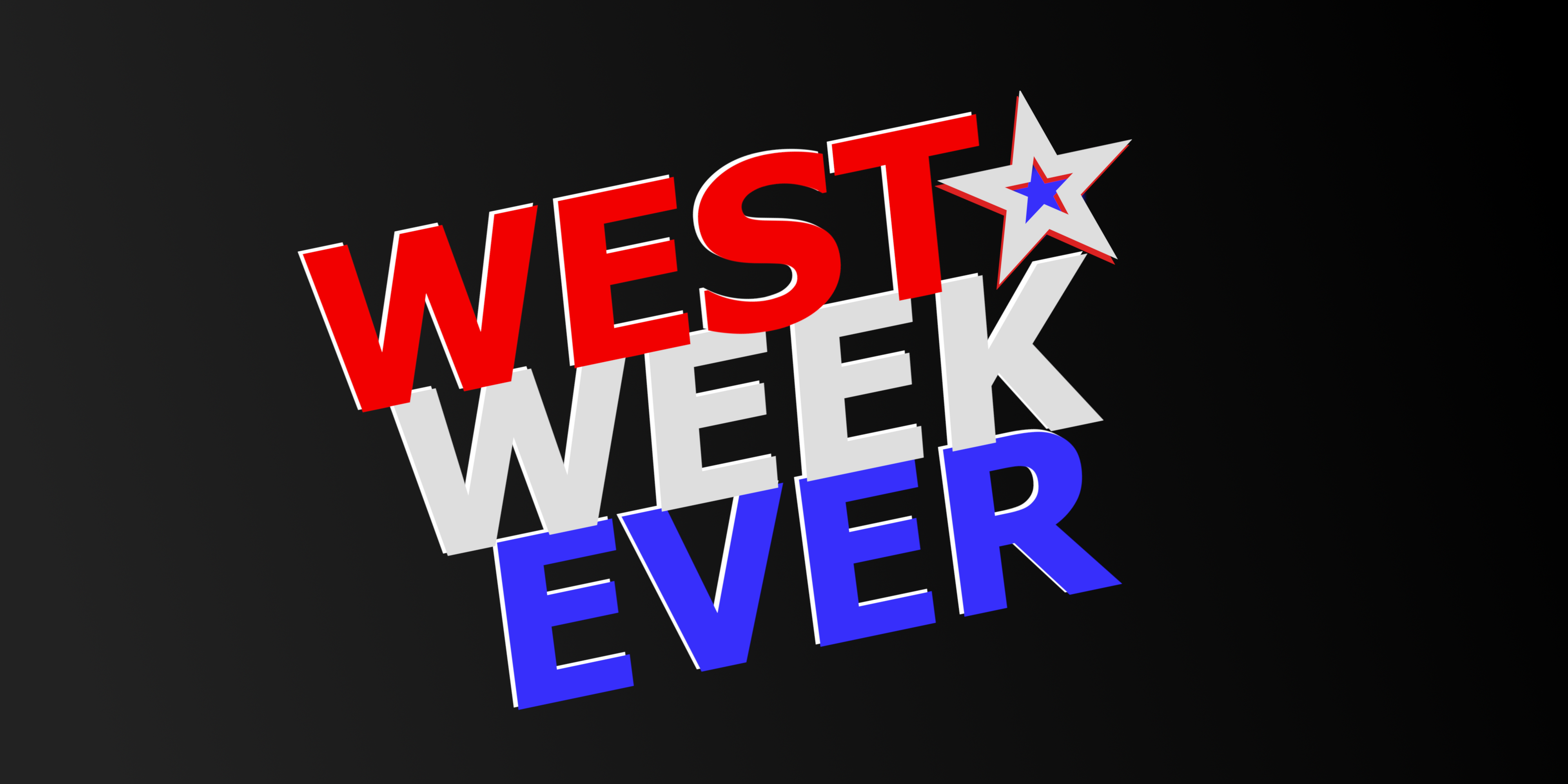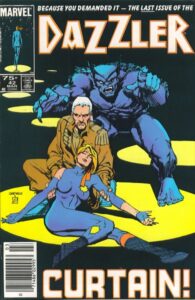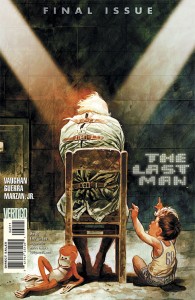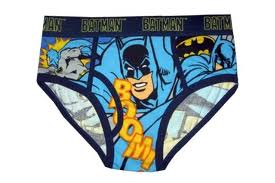I haven’t set foot in a comic shop in almost a month, and it’s a weird feeling. Basically, I found myself in a position where I was paying rent for 2 different places, and just couldn’t spare the money. That said, I don’t really feel like I’ve been missing anything. I was souring on all of the “events” that have come to dominate comics, and it seems the Big Two are busy gearing up for Fear Itself and Flashpoint. Over recent years, I’ve found that I’m growing tired of a lot of ongoing comics. Don’t get me wrong – I still prefer that format over trades and digital, but I find that there are a bunch of ongoings that are just…unnecessary. I understand that publishers are just trying to make money, but there are a lot of books that simply exist only to exist, which can be detrimental to characters and profits.
There are certain perennial books that aren’t going anywhere. Batman, Spider-Man, Superman, X-Men – they’ll always be published in some form or another. They are tent-pole franchises, as they keep the lights on, while adorning the Underoos of kids across the world. A couple of rungs down, you’ve got your Blade, Moon Knight, Azrael, etc. These are characters that tend to serve as decent utility players, but don’t have the depth to carry their own ongoing series. That lack of depth, however, doesn’t keep publishers from trying and trying and trying. As the cover prices of comics increase, publishers can’t afford to keep cranking out these D-list series with no real goal in mind, especially when these series tend to really just be backdoor affiliates to some current event running in other books. Let’s take a closer look at one example of this: Booster Gold.
I love the Booster Gold series, and have been buying it since it debuted following 52. For those not familiar, Booster Gold is a C-list Justice Leaguer who debuted in the 80s. He and Blue Beetle comprised “Team Blue & Gold”, providing the comic relief for the Justice League International. Leading into DC event Infinite Crisis, shit got real when Blue Beetle was murdered. In the subsequent 52 series, Booster gained a higher profile, as he actually became a true hero in the DC Universe. He wasn’t on the level of the Superman-Batman-Wonder Woman trinity, but he had enough clout that he was able to carry his own series for the first time since the late 80s. The book was great…in the beginning.
When Booster Gold launched, it was co-written by wunderkind Geoff Johns and former New Line exec Jeff Katz. That team handled the first year of the series, and it was later turned over to Booster’s creator, Dan Jurgens. Eventually, the book was handled by a bunch of guest writers until it was given to former Justice League writer, Keith Giffen. Through all of these creative changes, the character has still been able to grow and mature. At the same time, the book has also experienced several false endings – usually around the time a new team was about to take over. After the second one of these, it became apparent to me that the book could end and I really wouldn’t care. After all, these teams had provided a good bit of closure, and it almost seemed wrong to just pick up and go in another direction with things. It was also around this time that I realized that the whole Booster concept was being repurposed.
As I said in the beginning, Booster was always a bit of a joke. A hero from the future, Booster was actually a disgraced former football star who’d found himself as a janitor. Stealing a bunch of hero tech, he traveled back to our time to find fame and fortune. Along the way, he became a true hero, but that doesn’t really become realized until the events following the death of his best friend, Blue Beetle. When the post-52 series launched, it had an interesting hook: due to all of the timeline problems of the DC Universe, Booster would be the one to make sure that the timeline was protected from threats and anomalies. Due to the delicate nature of his work, he pretended to still be a bumbling glory hound so that no one would pick up on his mission. This was all a neat, new angle for a character that had been somewhat one-dimensional since his debut. Then, something happened: Booster became the lynchpin for a bunch of DC events that, while temporal in nature, diluted a lot of what had been built up in his solo book. First, he was dragged into the Vanishing Point miniseries, which was connected to The Return of Bruce Wayne, even though it finished weeks after that storyline had completed. Next, Booster was responsible for getting the Justice League International team back together in the bi-weekly Justice League: Generation Lost series. Next, he’ll be an integral part of the Flashpoint event. While a high profile character like Wolverine or Spider-Man can be pulled in different directions like this, Booster’s not strong enough to carry all of this. If DC wants him in all these minis, why not cancel his book?
They were finally on to something when Booster was given his new, “secret” mission, but now that’s all been put aside for these Universe-spanning minis. To really retain the shine on Booster, maybe they should just put him on a shelf until he’s needed. Maybe lose him in the time stream until the next Crisis. Listen: Don’t KILL him. Don’t make a big deal out of a death you know will be reversed in 5 years. Just “lose” him, to add suspense. After all, they could only pull him out when it’s a big deal, and his reappearance would tip off readers that something major was about to occur. Why continue to waste him in a monthly capacity when it’s clearly not what you seem to want to do with the character? I’ve come to believe that a book should be launched with a goal in mind, and Booster has reached his goal many times over. While there will always be threats to the timeline, pulling him into more and more meaningless crossovers isn’t going to raise his profile, but rather overexpose him. Booster Gold hasn’t been a stellar seller since that first year, and now it’s clear that they’re just going to publish it until the numbers drop below that magic number. Instead of just coasting along to that point, why not just take him off the board for a bit?
I think my mindset may have been affected by the fact that I’ve been reading more Vertigo books in recent years, and they tend to have concrete endings in store. As long as they aren’t killed by low sales, a Vertigo series tends to last between 60-70 issues, toward a specific ending. Over time, I’ve just come to believe that some stories should end. I don’t expect to see a final Batman or Superman story, unless it’s some sales gimmick/dream sequence/alternate reality tale. Other books, though, like Booster Gold, Red Robin, New Mutants, and Namor: The First Mutant can just end. They’re cashing in on their affiliation to successful franchises, while not adding any value. In many cases, they serve as the expansion ground for B-level crossovers that don’t really help the starring character/team in any way. They’ll simply be published, without any real master plan, until the sales drop below a certain number – at which point the events in those books will be either retconned or forgotten.
In many cases, the writing’s on the wall long before you see “FINAL ISSUE” in the Previews solicitation blurb (usually, a pretty good indicator is when Fabian Nicieza becomes the writer on a book). So, I’ve had to ask myself: “Do I really want to be on deathwatch for this book, or is it time that I did something better with my $3.99?” I tend to watch the sales figures every month to brace myself for what’s on the chopping block. Once that Vertigo book drops under 6,000 copies, they’re not even gonna make their money back on the trades, so that’s a wrap.
Sure, well-written comics can have low sales, but diluted brands and characters can also result in low sales. For example, the comic blogosphere claims that Thor: The Mighty Avenger was the greatest thing since internet porn, but nobody was buying it. In this case, it had nothing to do with quality, but rather the book got lost in a deluge of pre-movie Thor books that Marvel unleashed on the market. Figure out a plan for your character and stick with it. Less is more, movie release be damned. Publishers rarely match up releases to successfully capitalize on movie releases, and this is another example of how it’s a delicate science. You’re damned if you’re caught with your pants down (1st X-Men movie), you’re damned if you have too much product (Thor), and you’re damned if the studio keeps moving the release date of the movie (Whiteout).
At the end of the day, Marvel and DC are making their real money off of Batman & Robin and Avengers. The sales of these books allow them to take chances on things like Secret Warriors and Simon Dark, but is it really worth it when these books hit the stands with the taint of impermanence? When they cancel these books, they like to blame the readers, by saying that “the audience just wasn’t there”, but I find it hard to believe that the publishers ever really believed in a lot of these books. These things aren’t getting any cheaper, so why am I supposed to support a book when it seems clear that the publisher doesn’t even care about it? I mean, c’mon, Jim Calafiore? Instead of only focusing on the characters that sell Underoos, maybe they should put some of the new characters on some of those briefs. After all, licensing is the holy grail, but it’s said that readers don’t want new characters, so none of the new ones “graduate” to lunchboxes. Maybe, if they reversed the process and put a bunch of new characters on lunchboxes first, it would inspire people to want to learn more about those characters. Then again, who am I to say that? I’m just the fool who’s been spending his money on these things for the past 20 years. Well, I think I’m going to be a bit smarter about the ones that I buy from now on.







